
John Uhler Lemmon III was an American actor. Considered proficient in both dramatic and comic roles, Lemmon was known for his anxious, middle-class everyman screen persona in comedy-drama films. He received numerous accolades including two Academy Awards, seven Golden Globe Awards and two Primetime Emmy Awards. He received the AFI Life Achievement Award in 1988, the Cecil B. DeMille Award in 1991, and the Kennedy Center Honors in 1996. The Guardian labeled him as "the most successful tragi-comedian of his age."
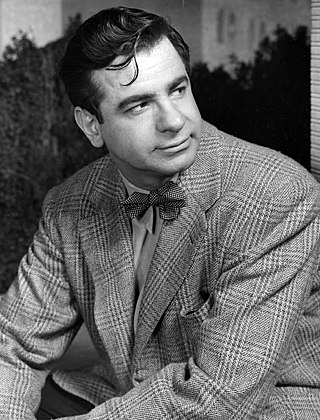
Walter John Matthau was an American screen and stage actor, known for his "hangdog face" and for playing world-weary characters. He starred in 10 films alongside his real-life friend Jack Lemmon, including The Odd Couple (1968) and Grumpy Old Men (1993). The New York Times called this "one of Hollywood's most successful pairings". Among other accolades, he was an Academy Award, a two-time BAFTA Award, and two-time Tony Award winner.

Samuel Atkinson Waterston is an American actor. Waterston is known for his work in theater, television, and film. He has received numerous accolades including a Primetime Emmy Award, Golden Globe Award, and Screen Actors Guild Award as well as nominations for an Academy Award, a Tony Award, and a BAFTA Award. His acting career has spanned over five decades acting on stage and screen. Waterston received a star on the Hollywood Walk of Fame in 2010 and was inducted into the American Theater Hall of Fame in 2012.

Lisa Valerie Kudrow is an American actress. She rose to international fame for her role as Phoebe Buffay in the American television sitcom Friends, which aired from 1994 to 2004. The series earned her Primetime Emmy, Screen Actors Guild, Satellite, American Comedy and TV Guide awards. Phoebe has since been named one of the greatest television characters of all time and is considered to be Kudrow's breakout role, spawning her successful film career.

Muriel Teresa Wright was an American actress. She won the 1942 Academy Award for Best Supporting Actress for her role as Carol Beldon in Mrs. Miniver. She was nominated for the same award in 1941 for her debut work in The Little Foxes. Also in 1942, she received a nomination for the Academy Award for Best Actress for her performance in The Pride of the Yankees, opposite Gary Cooper. She is also known for her performances in Alfred Hitchcock's Shadow of a Doubt (1943), and in William Wyler's The Best Years of Our Lives (1946).
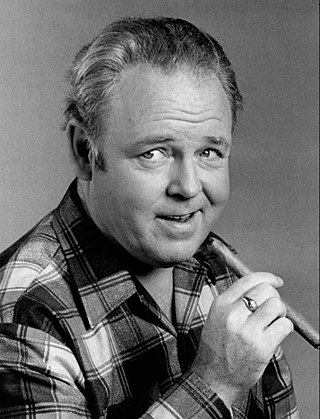
John Carroll O'Connor was an American actor whose television career spanned over four decades. He found widespread fame as Archie Bunker, the main character in the CBS television sitcoms All in the Family (1971–1979) and its continuation, Archie Bunker's Place (1979–1983). He later starred in the NBC/CBS television crime drama In the Heat of the Night (1988–1995), where he played the role of police chief William "Bill" Gillespie. In the late 1990s, he played Gus Stemple, the father of Jamie Buchman on Mad About You. In 1996, O'Connor was ranked number 38 on TV Guide's 50 Greatest TV Stars of All Time. He won five Emmys and one Golden Globe Award.

Naked City is an American police procedural television series from Screen Gems that aired on ABC from 1958 to 1963. It was inspired by the 1948 motion picture The Naked City and mimics its dramatic "semi-documentary" format. As in the film, each episode concluded with a narrator intoning the iconic line: "There are eight million stories in the naked city. This has been one of them."

André Robin De Shields is an American actor, singer, dancer, director, and choreographer. He has received numerous accolades including an Emmy Award, Grammy Award, and Tony Award.

The 52nd Primetime Emmy Awards were held on Sunday, September 10, 2000. The ceremony was hosted by Garry Shandling and was broadcast on ABC. Networks Bravo and The WB received their first major nominations; this remains the only year in which a series from the latter or its descendants received a major nomination. The nominations were announced on July 20, 2000.
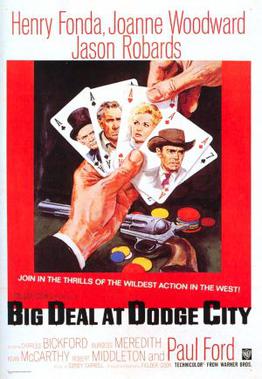
A Big Hand for the Little Lady is a 1966 American Western film made by Eden Productions Inc. and released by Warner Bros. The film was produced and directed by Fielder Cook from a screenplay by Sidney Carroll, adapted from their TV play Big Deal in Laredo, which aired on The DuPont Show of the Week in 1962.

The Price is a two-act play written in 1967 by Arthur Miller. It is about family dynamics, the price of furniture and the price of one's decisions. The play premiered on Broadway in 1968, and has been revived four times on Broadway. It was nominated for two 1968 Tony Awards.
The 41st Annual Tony Awards was held on June 7, 1987, at the Mark Hellinger Theatre and broadcast by CBS television. Angela Lansbury was the host for the third time. This broadcast was awarded the 1987 Primetime Emmy Award for Outstanding Variety, Music or Comedy Series.
Fielder Cook was an American television and film director, producer, and writer whose 1971 television film The Homecoming: A Christmas Story spawned the series The Waltons.
Jan Spencer Scott was an American production designer and art director. She won 11 Primetime Emmy Awards, more than any woman in the history of television and more than any other production designers. Scott was nominated for Emmy Awards a record total of 29 times. She was also a president of the Society of Motion Picture Art Directors and also served as a vice-president, second vice-president and governor of the Academy of Television Arts & Sciences.
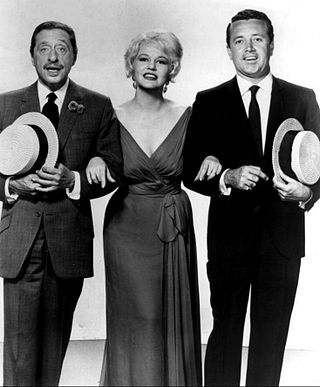
The DuPont Show of the Week is an American television anthology drama series that aired on NBC from September 17, 1961 to September 6, 1964. During its time on the air, the program "was NBC's late Sunday evening 'class' showcase".

"Little Moon of Alban" was an American television play broadcast by NBC on March 24, 1958, as part of the television series, Hallmark Hall of Fame. It was written by James Costigan, directed by George Schaefer, and starred Julie Harris and Christopher Plummer.
"Sacco-Vanzetti Story" is a two-part American television play that was broadcast on June 3, 1960, and June 10, 1960, as part of the NBC Sunday Showcase series.
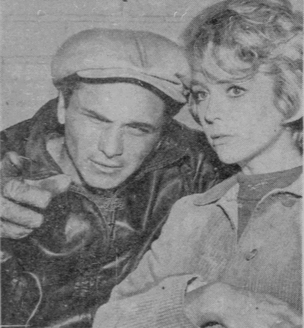
"The Price of Tomatoes" was an American television movie broadcast by NBC on January 16, 1962, as part of the television series, The Dick Powell Show. It was written and produced by Richard Alan Simmons and directed by David Friedkin. Peter Falk starred and won the Emmy Award for outstanding single performance by an actor in a leading role.

"The Voice of Charlie Pont" was an American television movie broadcast by the American Broadcasting Company on October 25, 1962, as part of the television series, Alcoa Premiere. The screen play was written by Halstead Welles and directed by Robert Ellis Miller, with the original story having been written by author Douglas Fairbairn. The production received multiple Emmy Award nominations, including Program of the Year, Bradford Dillman for lead actor, Diana Hyland for lead actress, and Robert Redford for supporting actor.
The Price is a TV play directed by Fielder Cook based on Arthur Miller's play 1971 play. It was presented as part of the Hallmark Hall of Fame and broadcast on NBC on February 3, 1971.















